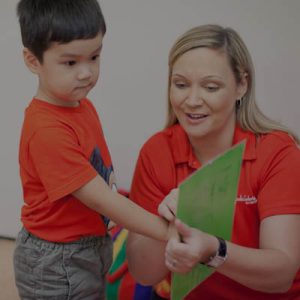Learning to be… creative, curious, clever, calm, centered
What must children learn in order to be successful in school?
Children are born learners
Success is fuelled by two strong internal statements:
I CAN – confidence & independence
I WANT – motivation & self-awareness
- We are genetically coded to learn an amazing range of skills and develop an astounding amount of knowledge, ideas and opinions about our world within a very short space of time.
- By the time a baby is 3 years old, not only has she developed understanding of an entire language system (often, more than one), she has mastered the subtleties of interacting and communicating with others.
- She knows what makes Daddy really upset and uses it to advantage, she understands that Mummy’s special frown means it’s no use crying, she can ask for and get what she wants (most of the time!).
- No one has actually taught her these and the hundreds of other things she does; she has acquired them through reaching out and engaging
If children are born to be successful, why do they stop trying and lose interest in education? Why do they fail?
Ironically, our own fears prevent success in children. In spite of nature’s gift, one of our greatest fears for our children is the possibility of failure in education. We agonise over their place in the education race. We try to give them the best in education. With the best of wills and the greatest love, we push them to achieve. Ironically, this results in the very thing we’re trying to avoid – de-motivation, stress and a lack of real achievement
How do I know that what I do to support my child is right?
The simplest answer is the look in your child’s eyes – they never lie. Is your child a confident, motivated child? Is your child independent, with his own opinions and feelings about himself and his life? Does your child like to communicate? These are the foundational qualities that support any effort to succeed.
How do I support my child to develop these qualities?
Give your child thinking and language skills, positive attitudes and strong values. Life is one long process of thinking and communication.
Whether you are raising a family, making friends, negotiating your way in the corporate world, discovering new ideas as a scientist or artist, thought and communication supported by positive attitudes and values are fundamental for success.
What can I do to encourage thinking and language development in my child?
1. BUILD CONFIDENCE & MOTIVATION
It is very easy to destroy confidence and motivation and very hard to fix it once broken. Confidence and motivation are naturally given – all we have to do is nurture it and protect it.
- Believe – that every child is a winner
- Allow your child to try, make mistakes and move on
- Accept. The “Yes, and…” approach – don’t create conflict situations.
- Celebrate achievement – look for the positives
- Give specific feedback
- Separate the behaviour from the person
- Look at the world through the eyes and mind of your child
- Enjoy time with your child ‘messing’ about and talking.
- Talk – conversations with your child will develop her self-awareness and a strong relationship with you.
- Laugh – give your child good memories to support the very centre of her self-identity.
2. TALK & LISTEN
When children talk at length they….
- explore and revisit their ideas and so develop self-awareness
- engage in more complex and varied thought processing and language structures
- learn to pick up language and body language cues from their listeners and therefore develop strong interaction skills
- develop confidence in sharing their thoughts and ideas
When you talk and listen to your child you:
- gain incredible insights in to their imaginations and their thoughts
- understand your child’s personality and habits better and so develop more effective strategies in managing behaviour
- discover what a marvelous time childhood is and find it easier to ensure a positive childhood for your child
- make your child feel valued and safe which goes a long way towards her self-esteem and identity
- build a bank of precious memories for your child to draw from in later life
- set the foundations for a very strong relationship
3. ENGAGE WITH PRINT
Create a print rich environment
- books and reading material within easy reach
- other print material around the house: calendars, notices, brochures etc.
- writing and art material within easy reach
Read
- reading to your child – from turning pages and looking/talking about pictures to reading and talking about the story
- modeling reading for pleasure and information
- noticing and modeling using the print environment – pointing out letters and words, looking for information in the print environment with your child
Write
- pre-writing activities – handwork to develop fine motor control (drawing, art & craft, cutting, threading, making things)
- scribing for your child as he talks
- modeling writing for pleasure and specific functions (making shopping lists) letting your child help you with writing tasks
At Julia Gabriel, we empower students to communicate confidently through EduDrama®, a unique learning philosophy inspired by educators passionate about children, language & the arts. For more information about our programmes, workshops and seminars, contact us here.

